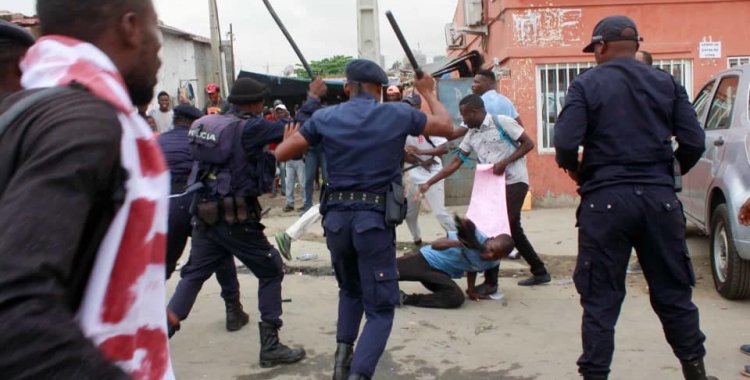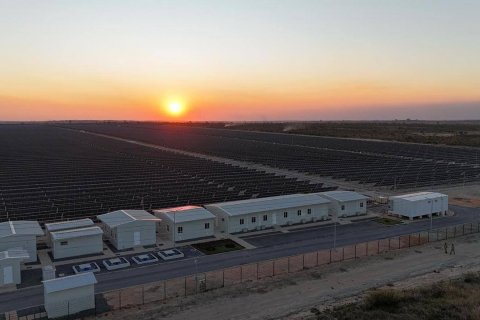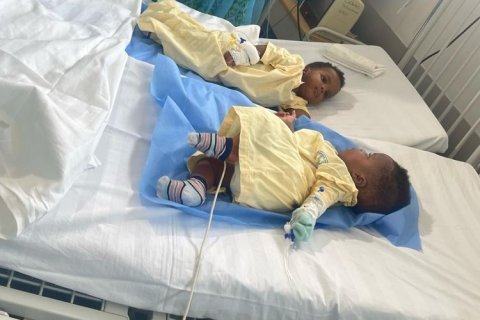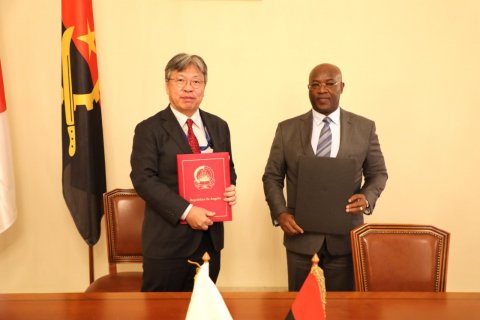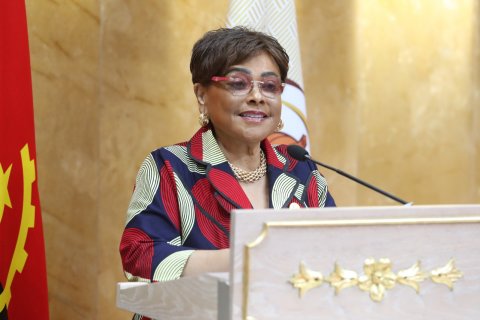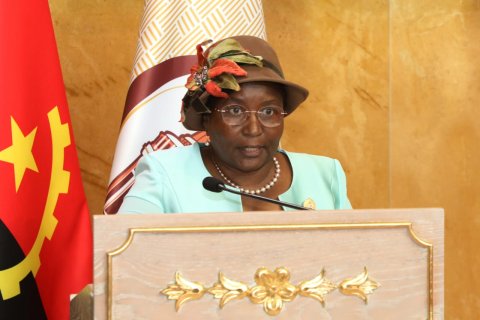The annual report of the non-governmental organization (NGO) has an especially critical perspective on the responses to the pandemic that hit the poorest hardest, affected by the breakdown of health systems and economic and social support, due to the weight of decades of negligence.
"Nowhere has this been felt more clearly and cruelly than in Africa, which is why Amnesty International launches its report today from South Africa", highlights the NGO.
The analysis focuses on Amnesty International (AI) research areas on the human rights situation in 154 countries in 2021: health and inequalities, the space of civil society and the summary expulsion of refugees and migrants in the countries of the global North.
In Angola, AI highlights the excessive use of force by the authorities to disperse peaceful protests that brought together hundreds and thousands of people, defying confinement.
Angola is among a group of 12 African countries where people have died due to the use of live ammunition to disperse protesters.
The NGO highlights cases such as the clashes with the police during a demonstration in Cafunfo (Lunda Norte), in January 2021, which caused an undetermined number of deaths and injuries, as well as the "arbitrary arrests" of protesters and community leaders, among including the leader of the Portuguese Protectorate Movement of Lunda Tchokwe, José Mateus "Zecamutchima".
Also in Cabinda, on 30 May, police arrested several people after violently ending a march aimed at protesting hunger, unemployment and the cost of living.
Freedom of expression and assembly were also called into question on 4 February when members of the protesting civil society in Luanda who defended political alternatives to the ruling MPLA party were stopped by the police.
The same happened on 21 August, against a group protesting against human rights violations, on 30 August with activists who were demonstrating against the new electoral law, and on 25 September, with the Angolan Student Movement, which wanted to protest against rising tuition fees.
The AI report also criticizes the attacks on press freedom, recalling the suspension, due to alleged administrative irregularities, of the television channels Zap Viva, Vida TV and TV Record Africa Angola, in April last year, resulting in the loss of hundreds of jobs.
It also refers to the events of September 11, 2021, when UNITA militants prevented journalists from TV Zimbo (former private body that became part of the state sphere within the scope of the recovery of assets promoted by the executive) from covering a protest in Luanda, indicating that reporters preferred to remain anonymous to avoid reprisals.
Climate change and environmental degradation are another of the NGO's concerns in African countries.
Angola experienced the worst period of drought in 40 years, reflected in an increase in malnutrition due to lack of food and lack of access to water and adequate sanitation, affecting mainly women, children and the elderly, the report points out.
The document indicates that "drought, together with the illegal occupation by commercial farmers of communal pastures, has destroyed the ability of pastoralist communities to produce food for themselves".
The death of livestock in a region that heavily depends on livestock as the basis of its economic, social and cultural wealth has weakened the resilience of communities, the document adds.
Pastors from the municipalities of Curoca, Oukwanyama and Onamakunde, in Cunene province, in the municipalities of Quipungo and Gambos, in Huíla province, and in the municipalities of Virei and Bibala, in Namibe province, were particularly affected and were left without access to food, with dozens dying of hunger and malnutrition, especially the elderly and children.
Extreme water scarcity in the southern provinces has particularly affected women and girls who have to travel long periods in search of water, with water scarcity exacerbating the development of hygiene-related diseases.
AI also points out that the diversion of state funds hampered the government's ability to alleviate widespread economic difficulties and deal with the difficulties of the health sector, exacerbated by the pandemic, with concerns persisting about the rising cost of living and the economic and social devastation related to covid-19.
"Public awareness of inequality, especially among young people, has grown in response to the shocking contrast between images of starving people in rural areas, particularly in the southern region, and the opulence in the capital, Luanda", stresses the NGO.
While most Angolans faced severe food shortages, Operation Caranguejo, an investigation led by the State Information and Security Services and the Criminal Investigation Service (SIC), uncovered millions in misappropriated public funds in the private homes of 24 senior officials from the government.
"The President was forced to dismiss eight of them, most of whom were military generals and close figures, but public skepticism remained," the NGO's report concluded.

